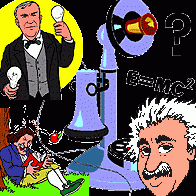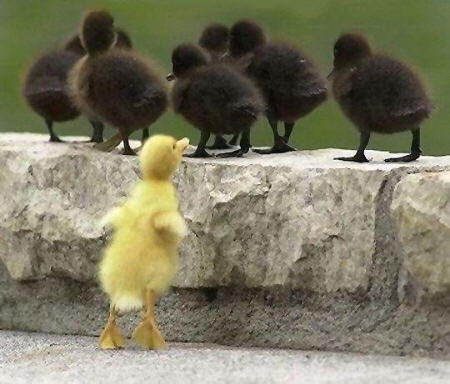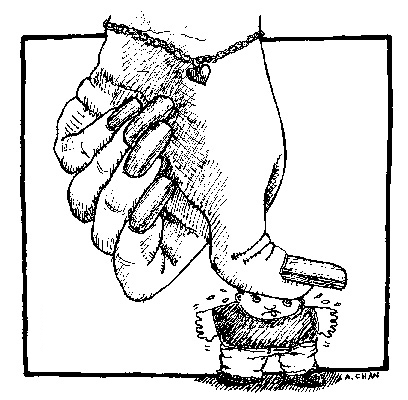Providing tips, tricks and insights into how to be more creative, innovative, resourceful and personally effective.
Who is More Valuable, Inventors or Innovators?
We should honor our inventors and perhaps we don’t do that enough, but having an original idea is just one early step toward successful innovation. We rightly and very pragmatically withhold our thanks and praise until we can see a clear benefit...
Innovation Requires Mass Customization – of Ourselves
We hear a lot these days about mass customization as a consumer trend, about how technology now allows us to mass produce products that are customized to the needs and desires of individual consumers. So, why stop with consumer products? To fuel innovation, we need to be talking about mass customization...of people.
For an Innovator, Is Anything Ever Impossible?
What have you concluded is impossible? Are you sure? How do you know? Maybe it’s just something that hasn’t yet been figured out. (And maybe you’re getting close.)
Innovation Essentials: Knowledge as Answers or Possibilities?
What’s your personal theory of knowledge? Is it something that gives you answers or possibilities? Of course, the short answer is, “Yes.” But if you had to choose, if you had to state a preference, I suspect you could, and for many it would be: answers. Not that most of us have given this a great deal of thought. It’s what’s known as an implicit theory, a largely subconscious belief, but one that nonetheless impacts how we think and behave—and how well we innovate.
Teenagers in Our Midst: Why Are World Class Innovators So Surly?
With the passing of Steve Jobs and with it recent reminders of how not only bright and creative, but arrogant and obnoxious he could be, I got to thinking: Why are great innovators at times so insufferable?
Innovation’s Holy Grail
Under Steve Jobs, Apple became what by almost all accounts has been the most successfully innovative company in the world. Now Apple faces what may be an even more daunting challenge: continuing with that innovation success without Steve Jobs. Isn’t that innovation’s Holy Grail? Isn’t that what the whole field of innovation is trying to figure out: how to build an organization that can produce the kind of success of an Apple…without having a world class genius at the helm? I have some hunches as to how...
Innovation Essentials: Who Do You Serve?
I’m hard pressed to think of any innovation that benefited only its creator. It seems to me that innovation by definition must benefit someone else, or it has no real value…but there are exceptions (unfortunately).
Innovation Essentials: Which Direction is Your Flywheel Turning?
In his acclaimed bestseller, Good to Great, Jim Collins talks about what he calls the “Flywheel Effect.” He describes how small actions and decisions, made over a period of time, add up to sustained momentum and success for great companies—like small nudges building momentum on a flywheel. I agree and riffing on his metaphor, I would add that our flywheel can be turning in either direction. It’s possible that a series of seemingly small decisions and incremental actions can gradually undermine our success. So the key question becomes: Which direction is your flywheel turning?
Innovation Essentials: Think Emergent
Innovation is an inherently emergent process. It’s not just about where we want to end up; it’s highly dependent on where we are. Where we begin has a profound impact on where we can go.
Innovation Essentials: Persistence is Overrated
There’s a prevalent and long-perpetuated myth about innovators, that they are persistent; they don’t give up. Renowned innovators like Henry Ford and Thomas Edison have even said it of themselves, crediting their success in part on their persistence. But it’s at best a poor choice of words and at worst a fundamental misunderstanding of what innovation entails, even by some of its best practitioners.
Mindset: Innovation’s Third Way
What most distinguishes the innovation high performers from the less innovative is not some indiscernible secret sauce of mental faculties. What distinguishes them is their mindset. That is to say: their attitudes, assumptions and beliefs—their mental models—about how the world works. These mental models are often subconscious. Yet they can have a huge impact on someone’s behavior and therefore how well they perform—and innovate.
World Class Innovator? Unfortunately.
We now live in a world in which not only our economic future, but our future security rests in large part on our creativity, our capacity to innovate. It’s yet another reason why strengthening our competence as innovators is such an imperative.











